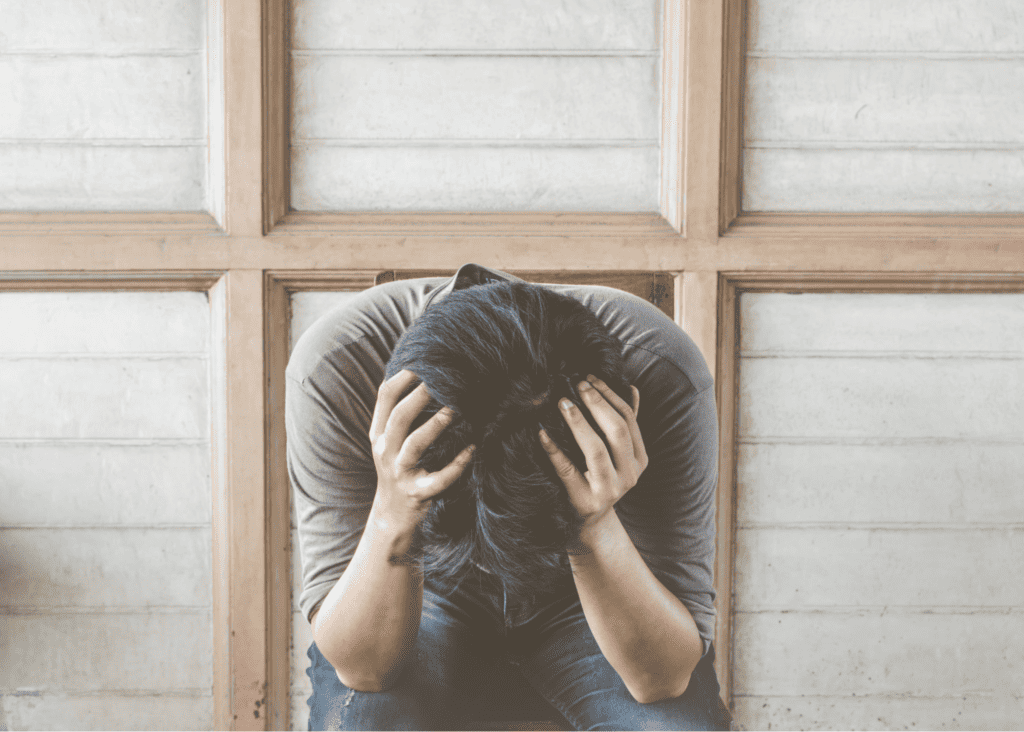What is Binge Eating Disorder? Do I have it?!
There can be a lot of shame or guilt involved with experiencing binge eating. If you are reading this you may have a lot of difficult thoughts and feelings about your relationship with food and eating.
You might be feeling overwhelmed, scared, ashamed, guilty, confused, frustrated etc. Keep reading because learning more about what might be going on for you can be a powerful first step towards getting support to help you heal your relationship with food and eating.
What is Binge Eating?
A binge eating episode is not the same thing as a perceived binge or overeating. A binge eating episode is defined by the DSM-V (Diagnostic and Statistical Manual of Mental Disorders) as “eating in a discrete period of time (e.g. within any 2-hour period), an amount of food that is definitely larger than what most people would eat in a similar period under similar circumstances.” This often takes place quickly, alone/in secret and is associated with the sense of feeling out of control/unable to stop.
A perceived binge is an experience in which you feel like you have binged, but in reality the amount of food consumed does not fit the defined criteria for a binge eating episode.
Both a binge eating episode and perceived binge can leave a wake of challenging feelings and emotions behind them (often shame and/or guilt or anger), which make you feel much worse. This may lead you to believe you have done something wrong or that there is something wrong with you. Neither are true, but this can ultimately end up being a driving factor for a binge eating episode to continue or to reoccur. You can start to learn more about the restriction-binge cycle and some things that may be keeping you stuck in it (INSERT BLOG LINK for The Restrict-Binge Cycle…)
Do I have Binge Eating Disorder?
You may be experiencing binge eating disorder if you identify with or experience any of the following common signs of binge eating disorder
- Eat much more rapidly than normal
- Chaotic or unpredictable eating pattern
- Feel out of control around food
- Eat alone due to feeling embarrassed about how much is being eaten
- Experience periods of feeling like eating is uncontrollable and often to the point of feeling uncomfortably full
- Eat ‘normal’ amounts of food in social settings, and binge when alone
- Have body image concerns
- Feel extremely distressed, upset and anxious during and after a binge episode
- Feel disgusted, depressed or very guilty after a binge
- Feeling isolated, lonely, hopeless
- Regularly eat when not physically hungry
- Avoid certain foods and then eat them in unusually large amounts if/when they are eaten
- Feel numb or dissociated during a binge eating episode
- Experience repeat episodes of binge eating, which often results in feelings of shame or guilt
- Eat in secret and/or hiding wrappers or food packaging from others
What is Binge Eating Disorder?
Binge eating disorder is the most common eating disorder. Binge eating disorder diagnosis is defined by the following criteria:
- Recurrent binge eating episodes
- Experience of 3 or more of these characteristics of binge eating:
- Feel a lack of control over the food that you are consuming
- Eat rapidly and quickly until you are uncomfortably full
- Eat alone or secretively out of shame or embarrassment
- Eat even when you’re not hungry
- Eat more than you’d like of certain foods that you often try to restrict
- Feel depressed, guilty or anxious about your eating habits
- Recurring bingeing at least once a week for 3 months
- The binge eating does not occur in the context of other eating disorders
If you are experiencing binge eating episodes and much of the above criteria feels true of your experience, but the binge eating episodes are happening less frequently than described or have been occurring for less than three months you may be experiencing another eating disorder called UFED (unspecified feeding or eating disorder).
What we currently understand about binge eating disorder is that there are many factors which play a role in its development including genetics, epigenetics, cultural, historical, psychological and biological factors. One common misconception is that binge eating by in large, or in part, results from a lack of willpower. This is untrue and works to keep people stuck in shame, secrecy and isolation instead of being supported towards healing. Your binge eating is not due to a lack of willpower.
One more time…….your binge eating is not due to a lack of willpower.
Binge eating disorder is the most common eating disorder
Binge eating disorder is not new, but it is a relatively newly recognised diagnosis as of 2013. While binge eating disorder is the most common eating disorder, many people still don’t know or understand what it is.
Part of this is because of diet culture’s pervasive roots and the repeated messaging and representation historically of what someone struggling with an eating disorder “looks like”. Because this messaging has been, and continues to be, so pervasive it is quite likely that what comes to mind for you when you think of a person who has an eating disorder is a young, white, cis-gender, very thin female. If this is true for you, this is not your fault. This is a product of what you have been shown and taught by a culture that holds harmful beliefs about bodies.
This sadly results in individuals not getting the care they deserve and need because health care providers may not be screening them for one and because people don’t see themselves represented and they are therefore less likely to consider getting the help they need (or perhaps believe they don’t deserve or need it).
What we do know to be true about people struggling with eating disorders including binge eating disorder is that they are people of all ages, varying in body shapes and sizes, socioeconomic backgrounds, races and identities. You cannot look at someone and tell if they have an eating disorder OR the nature of that eating disorder.

Binge eating disorder is not just over eating
It’s important to note that binge eating disorder is not just emotional eating or overeating. Overeating (eating past the point of comfortable fullness) is something everyone does from time to time, but is different from a binge eating episode which typically involves a feeling of lack of control. It is also normal for people to eat for emotional reasons at times (this is very human and normal). If overeating or emotional eating is feeling distressing to you, please know that your experiences and feelings are valid. You might find reading 3 Things You Should Know about Emotional Eating next helpful to you.
Binge eating disorder is a diagnosable mental health condition.
Gentle Reminder: You do not need to qualify for an eating disorder diagnosis to be deserving of care and support for your food and eating concerns. If something doesn’t feel ok to you it’s important to honour your own wisdom and knowing.
Looking for Help?
You are not alone. There are many ways you can get support for binge eating disorder or other food and eating concerns. Reaching out for help can feel scary and you may never feel 100% ready, but if you are tired of, exhausted with or scared by how things have been feeling…… then maybe you are feeling ready enough?
I think I might have Binge Eating Disorder, what do I do now?
- Hop over to Binge Eating Disorder & Support Resources to explore some options available to you
- Reach out to Wander and Nourish Nutrition to inquire about support from a Dietitian and get help with next steps.
- Email: [email protected]
- Book a Free 15 minute Exploration Call Here to have a free video chat call with Dietitian Lisa Carrigg a Certified Eating Disorder Clinician and Intuitive Eating Counselor.
Disclaimer: This information is general advice in nature and should not be used in place of individualised care and medical advice from your Doctor or Dietitian and does not take into consideration any particular health conditions (including mental health conditions), medications or other needs you may currently have. If you feel unsafe or are in need of urgent support please contact your local emergency services. If you are in Australia and in a crisis or feeling unsafe please call 000 or Lifeline on 13 11 14.




